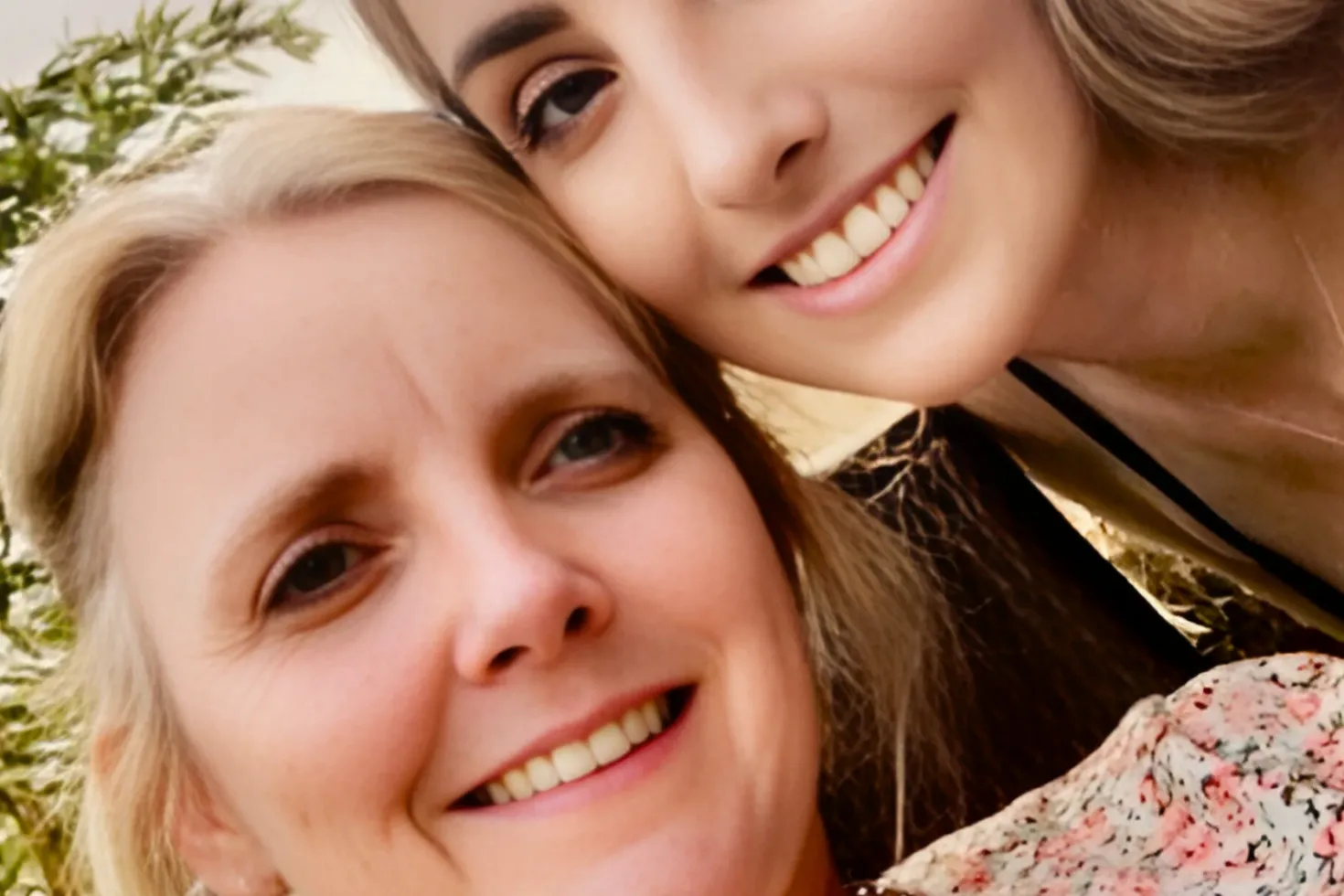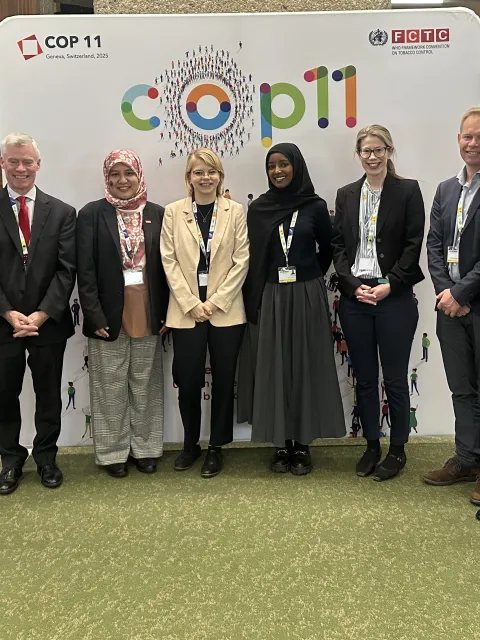“People deserve to be seen beyond stigma”: Lung Cancer Europe on supporting people with lung cancer
In an interview with UICC marking Lung Cancer Awareness Month, Swasti Mishra of Lung Cancer Europe, a UICC member, explains how improving early detection, evidence-based testing, and psychosocial care can help overcome disparities and improve outcomes in lung cancer.

HIGHLIGHTS
- Lung cancer remains the leading cause of cancer death worldwide, driven by late diagnoses, limited screening, and the need for more coordinated support throughout care.
- Lung Cancer Europe, a UICC member organisation, is working to reduce stigma, improve early detection, and ensure patient experiences shape healthcare policies.
- The ‘Get Checked!’ campaign is shifting focus to healthcare professionals, promoting earlier referrals, better scan use, and timely test results.
- EU‑backed pilots such as SOLACE are enabling low-dose CT screening, but uneven resources mean access remains inequitable; it is therefore essential to prioritise national implementation.
Lung cancer is the leading cause of cancer mortality worldwide, accounting for over 1.8 million deaths in 2022 – more than twice as many as those due to colorectal cancers, the second leading cause.
The fact that lung cancer is among the most commonly diagnosed cancers only partly explains this. The principal reason is that many people are diagnosed late, when treatment is harder to deliver successfully, because early-stage lung cancer often shows no symptoms, or only mild ones, and many people may not be aware of them.
Furthermore, organised screening programmes for people at higher risk to detect lung cancers earlier are still limited in availability and uptake, even in high-income settings where services exist.
This means many people will need strong, coordinated support throughout care. Clear information, help to navigate services, emotional support for individuals and families, rehabilitation, and palliative care are all essential to maintain quality of life and manage the impact of disease and treatment.
To understand how this support can be organised in practice, and marking Lung Cancer Awareness Month this November, UICC spoke with Swasti Mishra, Head of operations and Strategic Development at Lung Cancer Europe, a UICC member organisation.
Lung Cancer Europe brings together groups from across Europe to ensure that the experiences of people with, or at risk of, lung cancer are reflected in policy and services. Its work ranges from tackling stigma and improving referral and care, to providing practical information and support for people and families.
How would you characterise the current picture of lung cancer, globally and in Europe, and the main challenges to effective support?
Lung cancer accounts for nearly 19% of all cancer-related deaths in Europe. Too many diagnoses happen at a late stage when options are more limited. The fact that early disease can be silent or present with vague symptoms means people delay seeking help, or lung cancer is not even considered. and referral are often delayed.
Stigma often adds another barrier to seeking care. Tobacco use still causes approximately 85% of all lung cancer cases, and the first question many people hear is whether they smoked. Still, a recent study shows that 15-20% of people worldwide newly diagnosed with lung cancer never smoked.
This not only discourages people from seeking care, but can also shape assumptions in clinics. Across our network, we continue to hear examples of delayed referrals and later diagnoses linked to these factors. For people and families, this translates into a greater need for clear information, navigation support, psychosocial care from diagnosis, and reliable pathways through treatment and follow-up.
What does Lung Cancer Europe do, and how is the mission evolving?
Lung Cancer Europe brings together 39 organisations across 27 countries, so that the experiences of people living with or at risk of lung cancer are reflected in European policies and practices. The work ranges from reducing stigma and raising awareness to contributing directly to EU-funded projects and national lung cancer strategies.
In 2025, the organisation widened its focus to include direct support for healthcare professionals who are making first‑line decisions. This will be executed as a flagship priority in 2026 action plan. Helping them recognise symptoms early and talk openly about risks associated with lung cancer, without judgement, is key to diagnosing cases earlier diagnosis, with better and fairer outcomes across Europe.
So Lung Cancer Europe has been running the ‘Get Checked!’ campaign since 2021, to inform the general public about lung cancer. What has it achieved, and why change focus now and target healthcare professionals?
‘Get Checked!’ focused on communicating the common symptoms of lung cancer, and when to speak to a doctor. It has sought to explain what a diagnosis involves: referral for appropriate imaging, a biopsy if needed to confirm a positive diagnosis, and then determining the stage of disease to plan care. And it has demystified treatment-related tests so that people know what to expect and what to ask about. Since 2021, ‘Get Checked!’ has grown across Europe, providing clear, accessible information that supports early conversations between people and healthcare professionals.
The next phase now is to increase awareness among health professionals, so that conversations with patients are about symptoms, risk, treatment, and quality of life—not around assumptions. This change in target audience is member-driven, as most reported that this often seems to be missing, even in health systems with robust testing and infrastructure. We also want to look at supporting timely referrals for investigation, encouraging the appropriate use of low-dose CT scans where programmes exist, and ensuring that key tests are ordered early with results available in time to guide decisions.
Where is screening headed, and what does implementation require?
In 2022, the EU recommended that countries consider adding lung cancer to their national routine screening programmes, such as those for breast and colorectal cancers. In practice, this means inviting people at higher risk – usually former heavy smokers in aged 55–75 – for a low-dose CT scan, which can pick up small lung changes earlier than a standard X-ray.
Each country now has to decide the exact age and smoking history it will use, how people will be invited, how scans will be read and followed up, and how to ensure services are safe and consistent. Availability still varies widely – some places have scanners and trained staff ready to go, others do not have enough – so roll-out will depend on building capacity as well as setting the screening guidelines.
An EU project called SOLACE is helping by running pilots and producing practical guidance that countries can use.
New EU-backed pilots such as SOLACE safely and effectively in practice from invitation to following up – bringing in the right people, quality checks on the scans, clear next steps when a scan finds something – and to make sure people who are harder to reach are not left out, including those in rural areas or with lower incomes.
The goal is to make early detection routine, not exceptional. Croatia has implemented an exemplary national level screening programme, with commitments from other countries to follow suit, such as Germany in April 2026. But access still varies widely across Europe. Some regions have the scanners and trained staff ready, while others do not. Europe makes up about 10% of the world’s population but over 21% of global lung cancer cases. Closing the gaps in access to screening is urgent if we want to save more lives.
On 4 November at the European Parliament, Lung Cancer Europe co‑hosted a roundtable with MEP Tomislav Sokol, endorsed by MEP Dr András Kuliya: ‘United Against Lung Cancer: Renewing Europe’s Commitment to Action’. The discussion reignited our Call to Action to include specific lung cancer targets within Europe’s Beating Cancer Plan, as a model to pave clear pathways for establishing national cancer control plans (NCCPs) where they do not yet exist, and to strengthen existing NCCPs where lung cancer targets are missing.
And what are some of the gaps in diagnostics and treatment?
The biggest gaps people report are delays in referral, diagnosis and test results. In Lung Cancer Europe’s 9th Report from 2024, ‘Empowering Voices: Knowledge and Decision-Making Among People Impacted by Lung Cancer in Europe’, 65% of people delayed seeking medical advice after symptoms appeared, often because they did not recognise them. Many also reported long waits between their first appointment and confirmed diagnosis.
Lung Cancer Europe is working with partners in underserved regions to identify and fix these delays, from how samples are handled to how quickly results reach clinicians and families. There is little value in ordering tests if results come too late to guide treatment, or if the therapy that they point to is not available or funded. Regular multidisciplinary tumour board meetings can help close this gap by reviewing results quickly and confirming treatment plans without delay.
You mentioned mental health. What does the latest research by Lung Cancer Europe show, and how should services respond?
Lung Cancer Europe’s 10th Report on lung cancer and mental health was based on 2,204 participants from 31 European countries, with 61% reporting a negative impact on their mental health after diagnosis and nine in ten experienced emotional difficulties that affected daily life. Half said they were never offered mental health support, and two-thirds were not informed about patient organisations or support groups.
The organisation is calling for psychological and peer support to become part of standard care from the moment of diagnosis, when treatment changes and if the disease progresses. Support for caregivers also needs to be built in, with clear information and practical help available throughout the lung cancer journey.

The Lung Cancer room is a dedicated space for the lung cancer community to stay connected, share knowledge, and exchange key insights from lung cancer experts.
Last update
Thursday 18 December 2025
